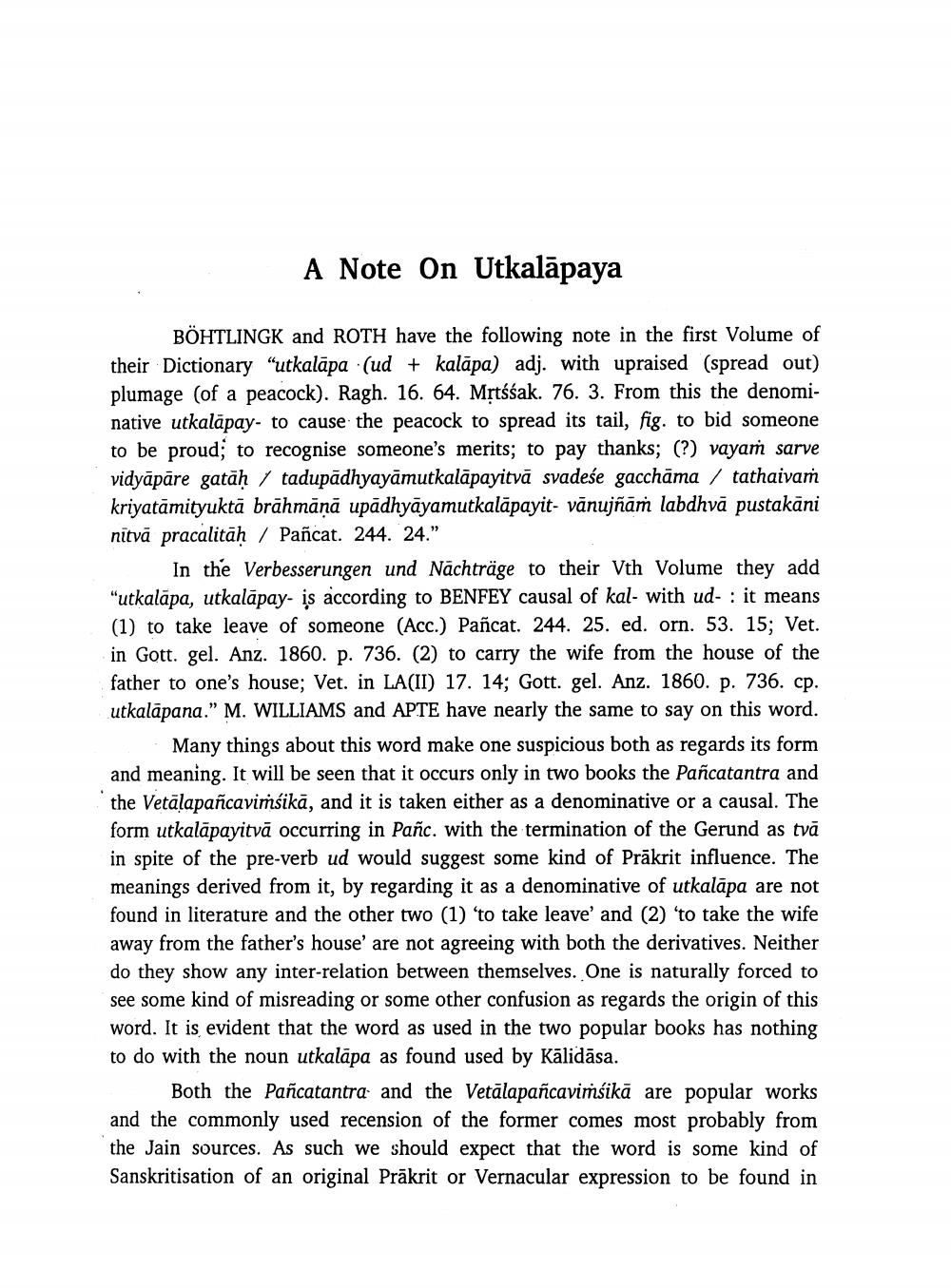________________
A Note On Utkalāpaya
BÖHTLINGK and ROTH have the following note in the first Volume of their Dictionary "utkalāpa (ud + kalāpa) adj. with upraised (spread out) plumage (of a peacock). Ragh. 16. 64. Mrtśćak. 76. 3. From this the denominative utkalāpay- to cause the peacock to spread its tail, fig. to bid someone to be proud; to recognise someone's merits; to pay thanks; (?) vayaṁ sarve vidyāpāre gatāḥ / tadupādhyayāmutkalāpayitvā svadese gacchāma / tathaivam kriyatāmityuktā brāhmānā upādhyāyamutkalāpayit- vānujñāṁ labdhvā pustakāni nitvā pracalitāh / Pañcat. 244. 24."
In the Verbesserungen und Nächträge to their Vth Volume they add "utkalapa, utkalāpay- is according to BENFEY causal of kal- with ud- : it means (1) to take leave of someone (Acc.) Pañcat. 244. 25. ed. orn. 53. 15; Vet. in Gott. gel. Anz. 1860. p. 736. (2) to carry the wife from the house of the father to one's house; Vet. in LA(II) 17. 14; Gott. gel. Anz. 1860. p. 736. cp. utkalāpana." M. WILLIAMS and APTE have nearly the same to say on this word.
Many things about this word make one suspicious both as regards its form and meaning. It will be seen that it occurs only in two books the Pañcatantra and the Vetālapañcavimśikā, and it is taken either as a denominative or a causal. The form utkalāpayitvā occurring in Pañc. with the termination of the Gerund as tvā in spite of the pre-verb ud would suggest some kind of Prākrit influence. The meanings derived from it, by regarding it as a denominative of utkalāpa are not found in literature and the other two (1) 'to take leave' and (2) 'to take the wife away from the father's house' are not agreeing with both the derivatives. Neither do they show any inter-relation between themselves. One is naturally forced to see some kind of misreading or some other confusion as regards the origin of this word. It is evident that the word as used in the two popular books has nothing to do with the noun utkalāpa as found used by Kālidāsa.
Both the Pañcatantra and the Vetālapañcavimśikā are popular works and the commonly used recension of the former comes most probably from the Jain sources. As such we should expect that the word is some kind of Sanskritisation of an original Prākrit or Vernacular expression to be found in




